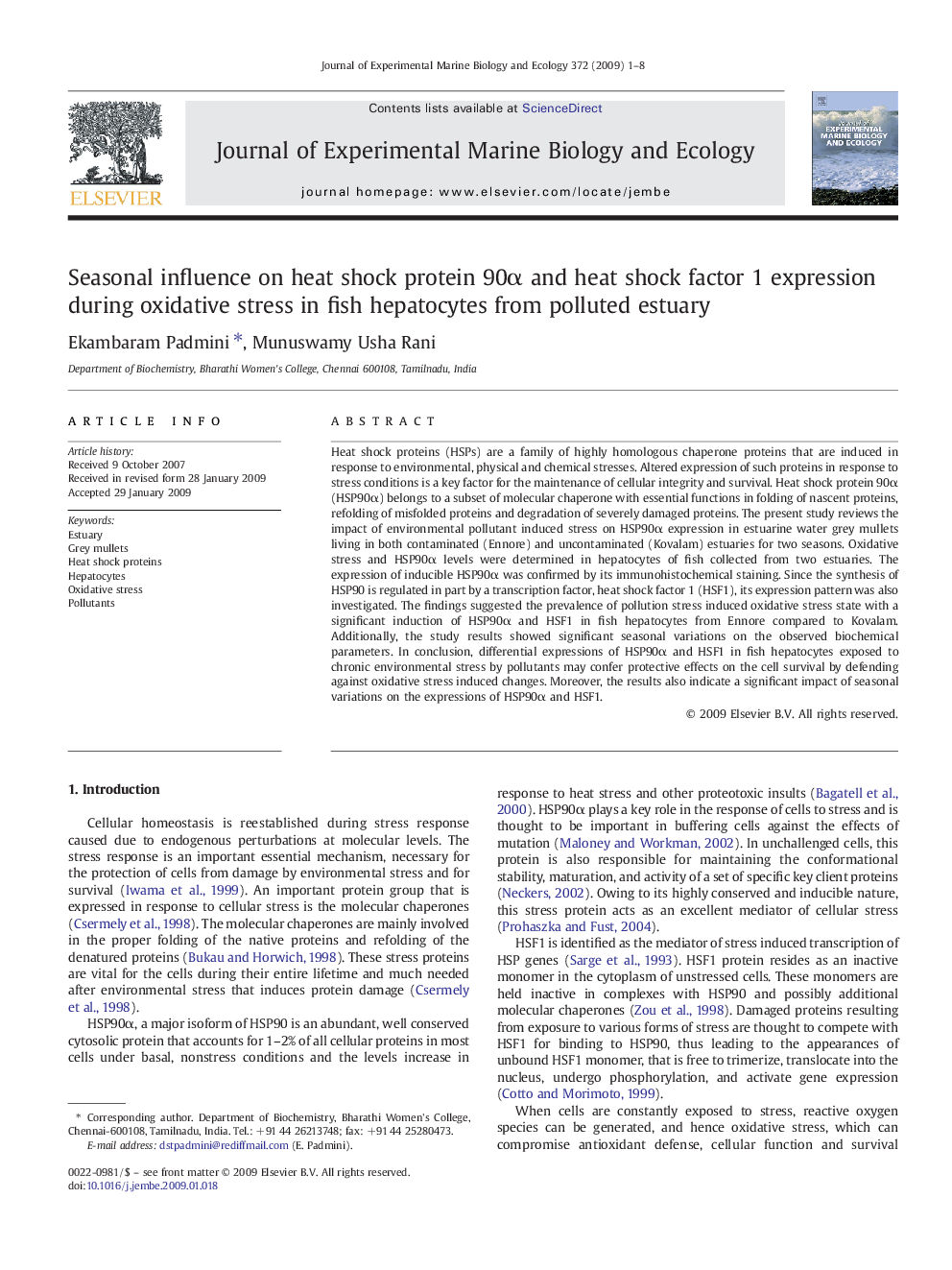| Article ID | Journal | Published Year | Pages | File Type |
|---|---|---|---|---|
| 4396989 | Journal of Experimental Marine Biology and Ecology | 2009 | 8 Pages |
Abstract
Heat shock proteins (HSPs) are a family of highly homologous chaperone proteins that are induced in response to environmental, physical and chemical stresses. Altered expression of such proteins in response to stress conditions is a key factor for the maintenance of cellular integrity and survival. Heat shock protein 90α (HSP90α) belongs to a subset of molecular chaperone with essential functions in folding of nascent proteins, refolding of misfolded proteins and degradation of severely damaged proteins. The present study reviews the impact of environmental pollutant induced stress on HSP90α expression in estuarine water grey mullets living in both contaminated (Ennore) and uncontaminated (Kovalam) estuaries for two seasons. Oxidative stress and HSP90α levels were determined in hepatocytes of fish collected from two estuaries. The expression of inducible HSP90α was confirmed by its immunohistochemical staining. Since the synthesis of HSP90 is regulated in part by a transcription factor, heat shock factor 1 (HSF1), its expression pattern was also investigated. The findings suggested the prevalence of pollution stress induced oxidative stress state with a significant induction of HSP90α and HSF1 in fish hepatocytes from Ennore compared to Kovalam. Additionally, the study results showed significant seasonal variations on the observed biochemical parameters. In conclusion, differential expressions of HSP90α and HSF1 in fish hepatocytes exposed to chronic environmental stress by pollutants may confer protective effects on the cell survival by defending against oxidative stress induced changes. Moreover, the results also indicate a significant impact of seasonal variations on the expressions of HSP90α and HSF1.
Related Topics
Life Sciences
Agricultural and Biological Sciences
Aquatic Science
Authors
Ekambaram Padmini, Munuswamy Usha Rani,
